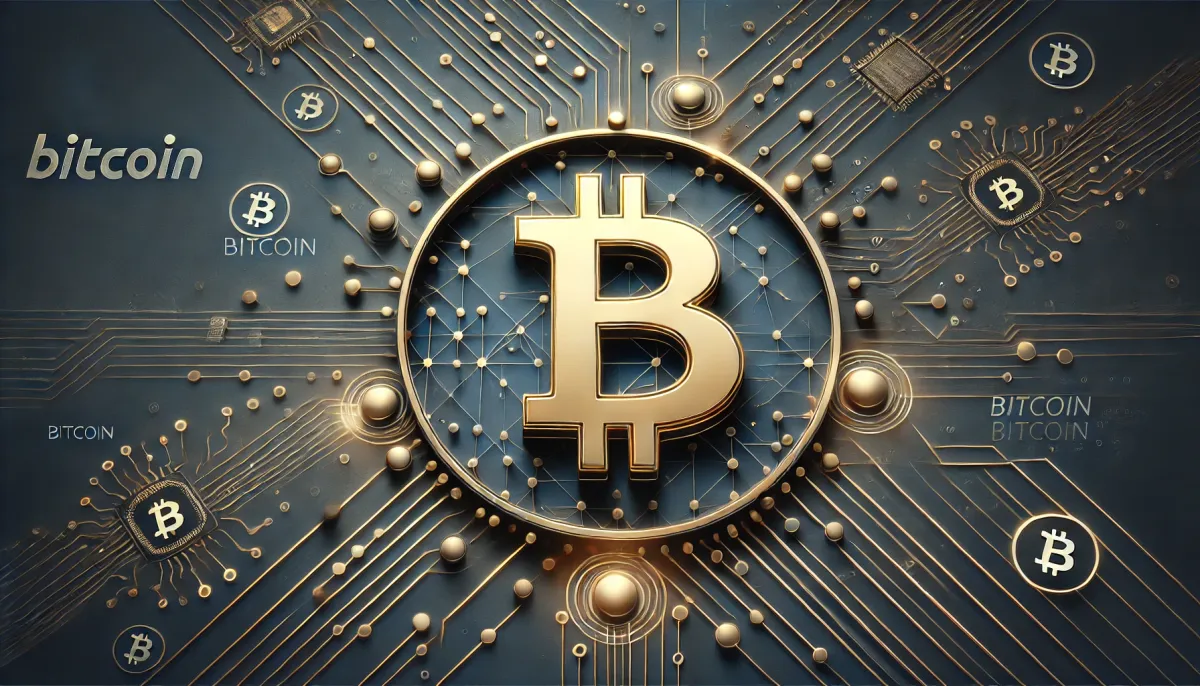Navigating BIP85 Changes and MuSig2: Key Security and Communication Challenges in Bitcoin
The October 10, 2024 episode of the Bitcoin Review explores critical issues surrounding BIP85’s disruptive changes, challenges in vendor communication, and the integration of MuSig2 into Bitcoin’s cryptographic framework.

Briefing Notes
My 'briefing notes' summarize the content of podcast episodes; they do not reflect my own views. If you have comments about this briefing note, please leave a comment below (requires signing up for a free blog subscription). Note that some of the podcast episodes I summarize may be sponsored: don't trust, verify, if the information you are looking for is to be used for decision-making.
Summary
The October 10, 2024 episode of the Bitcoin Review podcast explores critical issues in Bitcoin’s development ecosystem, particularly the disruption caused by changes to BIP85, the integration of musig2 for multi-signature transactions, and vulnerabilities exposed by the Salt Typhoon Hack. The episode underscores the need for better communication between Bitcoin Core developers and industry vendors, the importance of adopting secure cryptographic tools like musig2, and the growing need for robust security measures across Bitcoin’s infrastructure. These challenges have broad implications for Bitcoin’s governance, security, and future growth.
Take-Home Messages
- Communication Failures Between Developers and Vendors: The BIP85 incident highlights the risks of poor communication in Bitcoin’s development process. This gap must be addressed to ensure smoother implementations in the future.
- MuSig2 Brings Significant Security Benefits: Once integrated, musig2 will enhance privacy for multi-signature transactions, though hardware wallet compatibility must be solved first.
- Versioning of BIPs is Essential: Implementing versioning across Bitcoin Improvement Proposals can help prevent breaking changes and ensure a smoother transition for developers and vendors.
- Security Vulnerabilities Demand Attention: The Salt Typhoon Hack reveals significant risks, reinforcing the importance of Bitcoin’s infrastructure security and collaboration between developers and cybersecurity experts.
- Lightning Network Centralization Risks: The podcast raises concerns about centralization within the Lightning Network, and more work is needed to decentralize the node infrastructure for better network security.
Overview
The podcast episode delves into the technical and governance challenges currently facing Bitcoin, focusing on three main areas: changes to BIP85, the integration of musig2, and security vulnerabilities. The controversy around BIP85 stems from changes that disrupted vendors and wallets using deterministic seed generation without warning. The lack of proper communication between developers and vendors led to a broader conversation about how BIPs are managed and finalized, stressing the importance of versioning and direct engagement with vendors.
The introduction of MuSig2, an advanced cryptographic tool now merged into Bitcoin’s secp256k1 library, promises enhanced privacy for multi-signature transactions by making them appear as single-signature transactions on-chain. However, hardware wallet integration remains a significant technical hurdle, and wider adoption will depend on overcoming these challenges.
Security concerns were also prominent in the podcast, particularly in the wake of the Salt Typhoon Hack, which compromised critical U.S. infrastructure. The hack raised questions about Bitcoin’s security resilience, especially in light of vulnerabilities found in the Lightning Network’s node infrastructure. The speakers emphasized the need for better communication and transparency in Bitcoin’s development, calling for collaboration between developers, vendors, and cybersecurity experts to address these challenges.
Stakeholder Perspectives
- Bitcoin Core Developers: Focus on protocol security and efficiency, but need to improve communication with vendors to avoid disruptions like BIP85.
- Industry Vendors: Require clearer communication to prevent compatibility issues when changes are made to widely used BIPs or cryptographic libraries.
- Hardware Wallet Providers: Face technical challenges in integrating new cryptographic tools like MuSig2, but see this as a critical upgrade for security and privacy.
- Cybersecurity Experts: Urge collaboration with Bitcoin developers to address vulnerabilities like those exposed by the Salt Typhoon Hack.
- Investors and Users: Benefit from improved privacy and security, but are affected by disruptions in protocol updates and network vulnerabilities.
Implications
The disruptions caused by changes to BIP85 show how critical proper communication is between Bitcoin Core developers and vendors. Future changes to Bitcoin’s infrastructure should include structured communication processes and versioning of BIPs to avoid breaking wallets and disrupting services.
The growing importance of MuSig2 highlights the need for secure cryptographic advancements, but hardware wallets must evolve to support these tools effectively. Collaboration between Bitcoin developers and cybersecurity experts will be key to addressing vulnerabilities exposed by incidents like the Salt Typhoon Hack, ensuring Bitcoin’s infrastructure remains resilient.
Future Outlook
Improving the communication process between developers and vendors will be crucial to avoid future disruptions like those seen with BIP85. Clearer versioning of BIPs can prevent confusion and ensure that widely adopted standards are respected. Additionally, the successful integration of MuSig2 could transform how Bitcoin handles multi-signature transactions, providing enhanced privacy and security for users.
However, security vulnerabilities, especially in critical infrastructure and the Lightning Network, remain a pressing concern. The Salt Typhoon Hack underscores the need for ongoing collaboration between Bitcoin developers and cybersecurity experts. Addressing these vulnerabilities will not only improve Bitcoin’s security but also strengthen its reputation as a resilient and trustworthy digital asset for global use.
Information Gaps
- How can the Bitcoin community improve communication processes to ensure vendors are aware of BIP changes before implementation? Improving communication channels between developers and vendors is crucial for ensuring that protocol changes like those in BIP85 do not lead to unexpected disruptions. Research should focus on creating a structured process for notifying vendors and soliciting feedback before implementing such changes.
- How vulnerable is the Lightning Network to node crashes or similar attacks due to centralization? Understanding the risks associated with the centralization of the Lightning Network is vital to maintaining its resilience. Research should explore ways to decentralize the network's infrastructure, making it less vulnerable to attacks or crashes.
- What technical barriers are preventing immediate integration of musig2 in hardware wallets? Hardware wallets face significant challenges in supporting MuSig2. Research should focus on identifying these technical barriers and finding solutions that will allow vendors to securely integrate musig2 into their products, enhancing privacy and security for Bitcoin users.
- How can versioning be structured to clearly communicate breaking changes to developers and vendors? To avoid future disruptions, a versioning system for BIPs is necessary. Research should address how such a system can be implemented to ensure that all stakeholders are aware of breaking changes before they are rolled out.
- What steps can be taken to increase decentralization in the Lightning Network’s node infrastructure? Decentralizing the Lightning Network’s node infrastructure is essential for its long-term resilience. Research should explore strategies for reducing the reliance on central nodes and increasing the distribution of network control.
Broader Implications
Cryptographic Advancements and Hardware Wallet Integration
The integration of MuSig2 into Bitcoin’s secp256k1 library is a major advancement in Bitcoin’s cryptographic landscape, particularly for multi-signature transactions. However, the challenge of hardware wallet compatibility highlights the broader issue of integrating cutting-edge cryptographic tools into user-friendly products. As Bitcoin continues to evolve, ensuring that hardware and software solutions remain in sync will be critical to maintaining user security and enhancing privacy.
Infrastructure Security and Cyber Resilience
The Salt Typhoon Hack serves as a stark reminder of the vulnerabilities within critical infrastructure, including Bitcoin’s own network components. As Bitcoin’s adoption grows, it will increasingly become a target for sophisticated cyberattacks. Enhancing the security of Bitcoin’s infrastructure, especially through collaboration between developers and cybersecurity experts, will be vital for its future resilience.
Decentralization Challenges in the Lightning Network
The Lightning Network, while crucial for scaling Bitcoin transactions, faces risks from centralization, particularly in node operations. Addressing these centralization risks will be essential for preserving the network’s resilience and maintaining its decentralized ethos. As the Lightning Network expands, fostering more decentralization will help reduce vulnerabilities and ensure its long-term security.
Policy and Regulatory Implications
The issues discussed in the podcast have important implications for policymakers and regulators. Improved governance mechanisms, better security practices, and coordination with vendors are all necessary steps for safeguarding Bitcoin’s infrastructure. Regulators may increasingly focus on ensuring that digital assets like Bitcoin adhere to standards that promote security, transparency, and stability, particularly as adoption expands into more critical infrastructure sectors.



Comments ()